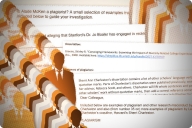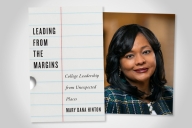You have /5 articles left.
Sign up for a free account or log in.
A judge in the U.S. Court of Appeals for the Second Circuit struck another blow for the “fair use” doctrine on Thursday, ruling that Google’s book digitization project can make book samples available free in an online database without violating authors’ copyright.
The ruling brings an end to a case that is almost as old as Google Books and the accompanying Library Project themselves. The Authors Guild brought the case against the company in 2005 -- about a year after the initiative began. Eight years later, the ruling now follows a string of victories for proponents of fair use.
Google has for nearly a decade helped libraries scan their books to turn them into digital resources. The company has scanned more than 20 million books since 2004, and has gradually populated its Books database with a handful of pages from the works it has processed. For example, a search for Cormac McCarthy’s No Country for Old Men brings up a fully digital copy of the book, although chunks of pages have been replaced with the message that they are “not part of this book preview.”
The fair use doctrine creates an important limitation to copyright enforcement, allowing for the use of copyrighted material in scholarship and criticism, among other uses. In the end, it was Google’s use of “snippets” -- a term mentioned 25 times in the ruling -- that played a decisive role in the legal proceedings.
“The display of snippets of text for search is similar to the display of thumbnail images of photographs for search or small images of concert posters for reference to past events, as the snippets help users locate books and determine whether they may be of interest,” Judge Denny Chin wrote in the ruling. “Google Books thus uses words for a different purpose -- it uses snippets of text to act as pointers directing users to a broad selection of books."
That point, coupled with the wealth of works in the database, has made Google Books “an essential research tool,” Chin concluded.
The ruling also highlights several other benefits of Google Books, including that it helps researchers mine large quantities of text for information, that the database expands access to users with disabilities, and that the digitization effort can also be seen as a preservation effort.
Google does not sell whole books or snippets through the database, but rather points users to its Play Store, an ebook service similar to Amazon’s Kindle Store or Apple’s iBooks Store. Neither are users able to access complete copies of copyrighted works. “An ‘attacker’ who tries to obtain an entire book by using a physical copy of the book to string together words appearing in successive passages would be able to obtain at best a patchwork of snippets that would be missing at least one snippet from every page and 10 percent of all pages,” the ruling reads.
The American Library Association cheered the decision in a statement, reiterating that Google Books is a “transformative fair use that advances research and learning.”
The ruling also drew praise from supporters of open educational resources. Dean Florez, president of the 20 Million Minds Foundation, described it as a "ray of hope" for the OER movement.
“This Judge Chin position is going to completely push our movement into hyperdrive,” Florez said. “For us, I think the next step is them saying [OER is] not just a public benefit, but a public utility.”
In a brief statement, the Authors Guild's executive director, Paul Aiken, said that “mass digitization and exploitation far exceeds the bounds of fair use defense.” The organization, which supports authors’ interests, will appeal the decision.








